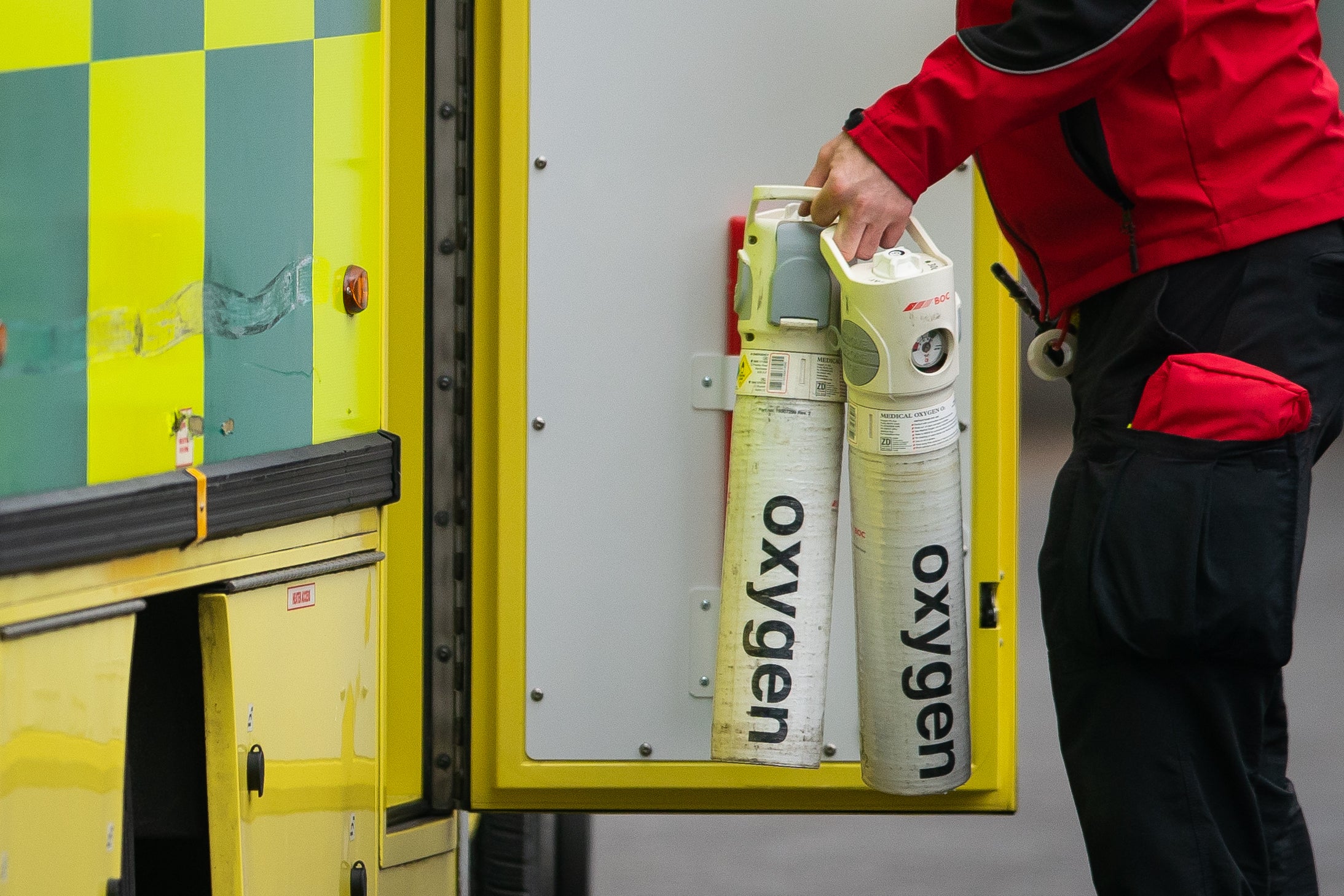Inaccurate blood oxygen device readings ‘higher in different ethnic groups’
The findings are important as high levels of skin pigmentation are linked to ethnic groups who have a poorer outcome from Covid-19, researchers say.

Your support helps us to tell the story
From reproductive rights to climate change to Big Tech, The Independent is on the ground when the story is developing. Whether it's investigating the financials of Elon Musk's pro-Trump PAC or producing our latest documentary, 'The A Word', which shines a light on the American women fighting for reproductive rights, we know how important it is to parse out the facts from the messaging.
At such a critical moment in US history, we need reporters on the ground. Your donation allows us to keep sending journalists to speak to both sides of the story.
The Independent is trusted by Americans across the entire political spectrum. And unlike many other quality news outlets, we choose not to lock Americans out of our reporting and analysis with paywalls. We believe quality journalism should be available to everyone, paid for by those who can afford it.
Your support makes all the difference.Inaccurate readings from devices that measure blood oxygen levels could be making it difficult to assess the severity of Covid-19 in people from different ethnic groups, research suggests.
Pulse oximeters attach a clip-like device to a person’s finger, toe or earlobe and send a beam of light to measure oxygen levels in the blood.
The resulting reading can be used to monitor oxygen levels of people with a variety of conditions, including by people at home with coronavirus, and to assess patients in hospital.
The study found oximeter readings overestimated oxygen levels in individuals with mixed, black and Asian ethnicities, compared with those of a white ethnicity.
Any error of measurement of oxygen levels will make assessing the severity of Covid-19 infection more difficult, and may delay delivery of timely medical care
Researchers suggest the findings are important as high levels of skin pigmentation are associated with ethnic groups who have a poorer outcome from Covid-19 infection.
These are also the people who would need the most accurate oxygen measurements available in order to deliver the most appropriate and timely treatment.
The study suggests the devices gave false readings of nearly 7% higher in a group of patients of mixed ethnicity with Covid, compared with white patients at just over 3%.
According to the research, which used hospital data, there were also falsely high readings in patients with black and Asian ethnicity.
This could result in a delay to patients receiving the best and most timely treatment for the virus, experts suggest.
Pulse oximeters can rapidly detect even small changes in oxygen levels and are routinely used in primary care and critical care settings such as emergency rooms or hospitals to monitor the status of patients.
However, the light that this technology uses is modified by skin pigmentation and may vary by skin colour.
A recent study reported different outputs in patients with black skin compared with patients with white skin, which has the potential to adversely affect patient care.
And in November last year the Department of Health and Social Care (DHSC) announced a review into the health impact of potential bias in medical devices, including pulse oximeters.
Dr Andrew Fogarty, from the School of Medicine at the University of Nottingham and the lead author of the study, said: “This data builds on what we know, which is that patients with darker skin have less accurate oxygen measurements using the pulse oximeters.
We are now exploring the impact of this on clinical outcomes to see if it may have led to any issues in escalating treatment intensity for our patients
“Any error of measurement of oxygen levels will make assessing the severity of Covid-19 infection more difficult, and may delay delivery of timely medical care.
“We are now exploring the impact of this on clinical outcomes to see if it may have led to any issues in escalating treatment intensity for our patients.”
Teams from the University of Nottingham and Nottingham University Hospitals NHS Trust used data from patients with Covid-19 to look at the difference in blood oxygen levels as measured by the devices and arterial blood gas tests, split into different ethnic groups.
The latter measure blood oxygen levels from an artery, and represent the gold standard measurement for oxygen levels.
The study used electronic data for patients admitted to Nottingham University Hospitals NHS Trust between February 2020 and September 2021 with Covid-19 infection.
The oximeter readings were compared with blood gas measurements within a half an hour window.
There were differences in the amounts of oxygen in the blood between the two methods in all the groups, the study published in the European Respiratory Journal suggests.
The highest difference was in the mixed ethnicity group where the oximeter reading was nearly 7% higher, with the lowest in the white group at 3.2% higher than the true measurement.
A reading of 5.4% higher using pulse oximetry was found in the black group of patients and 5.1% higher in the Asian population.
Researchers noted the differences in readings increased when oxygen levels were around 85% to 89%, which is when treatment can often be started for low oxygen levels.
The DHSC review will also consider how technology should be developed in ways that avoid ethnic disparities.